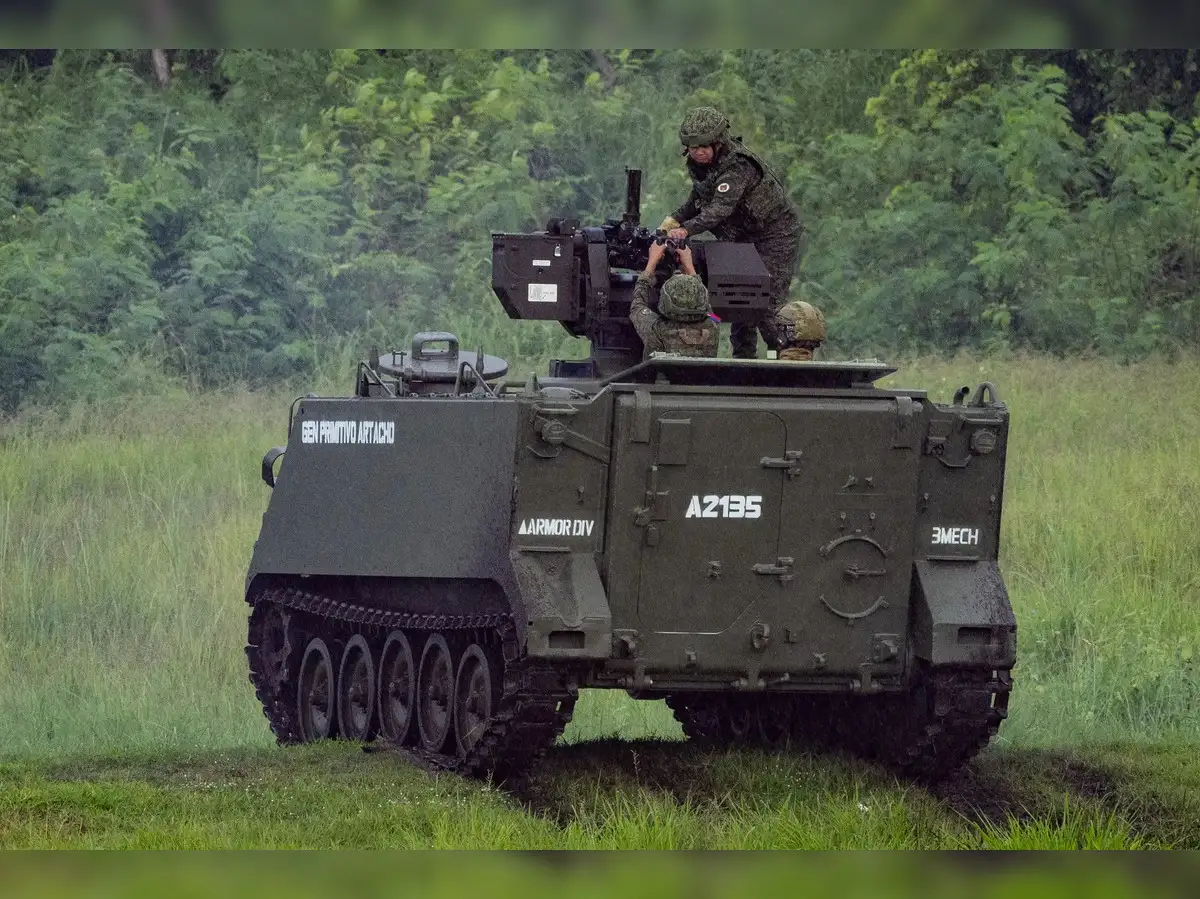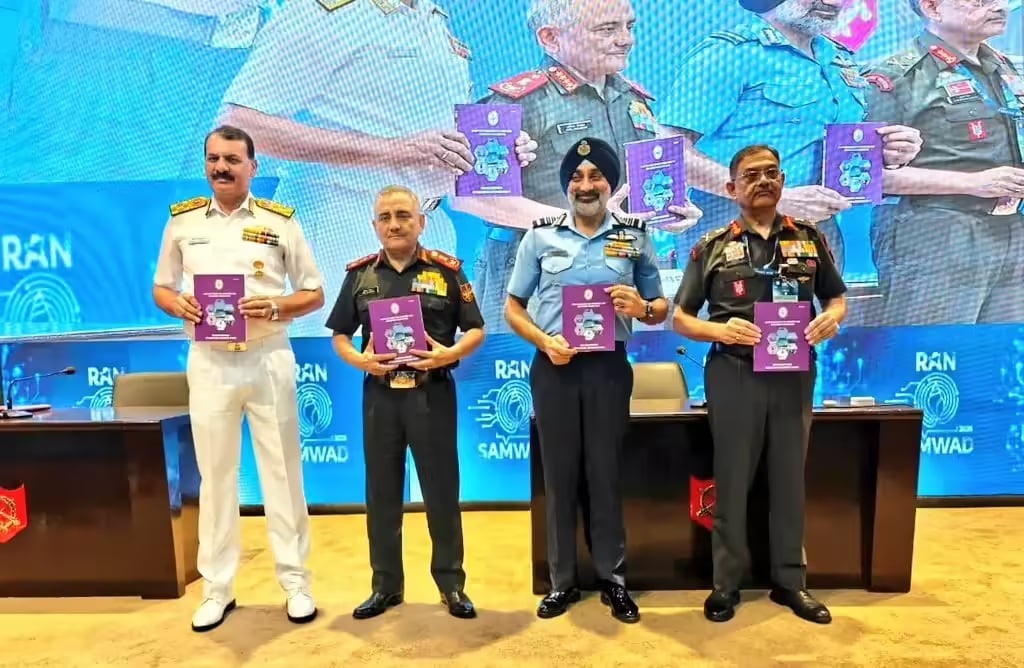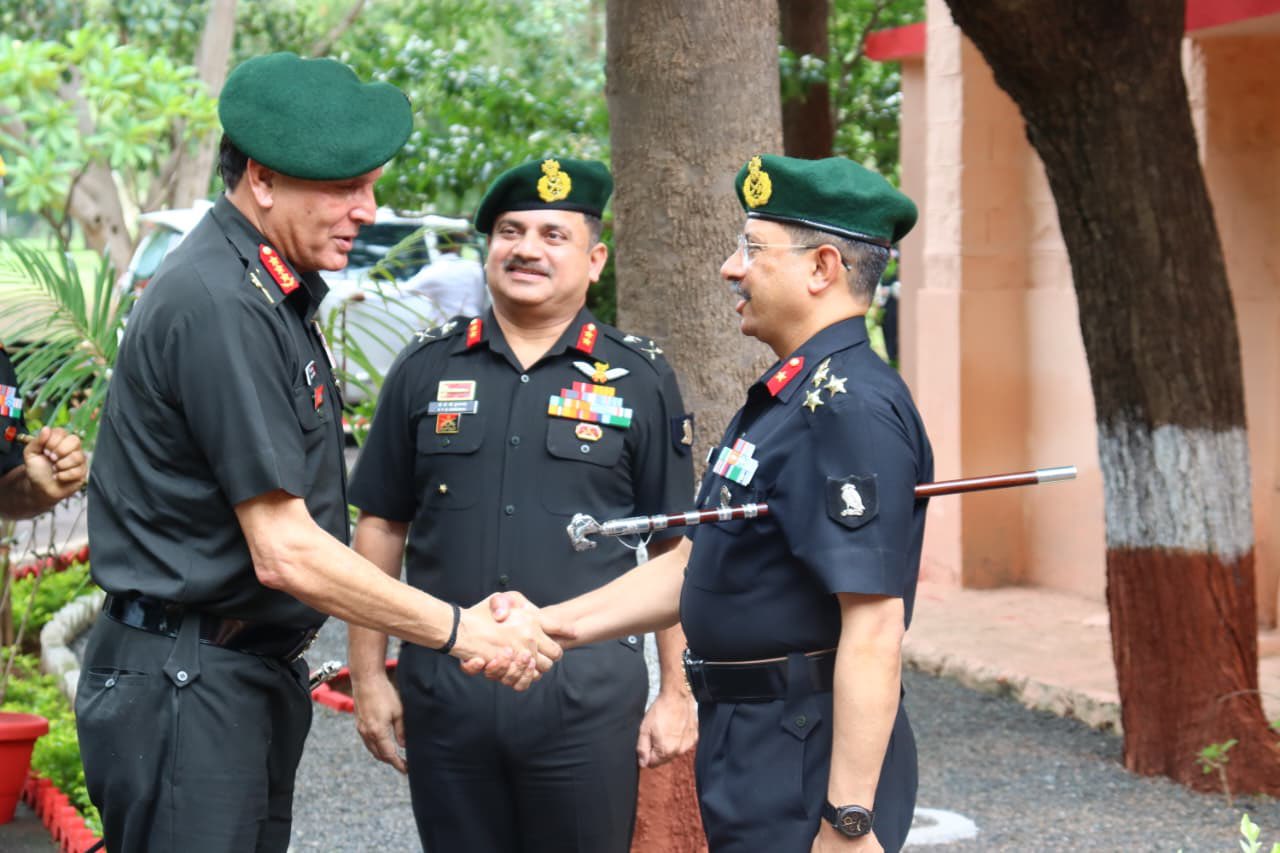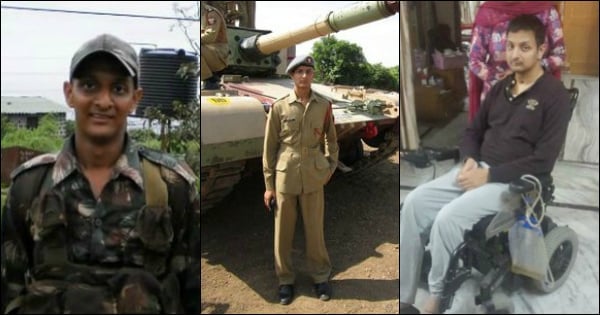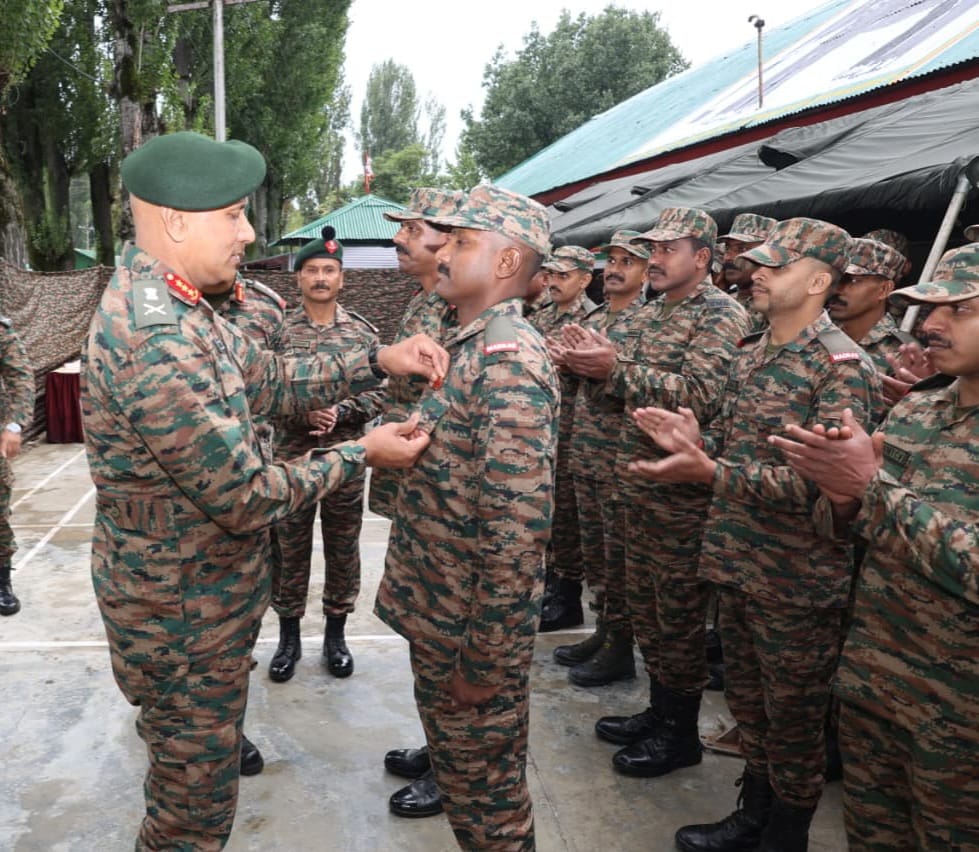India, Saudi Arabia Explore Joint Manufacturing of Military Hardware
New Delhi–Riyadh Talks Signal Shift from Buyer-Seller Ties to Joint Defence Production.
CDS Unveils Joint Doctrines for Special Forces and Airborne Operations at RAN SAMWAD
CDS General Anil Chauhan releases two key doctrinal publications at RAN SAMWAD, strengthening joint operational capability of Special Forces and…
Indian Army Southern Command Highlights Transformation Drive During Brigade Visit
Lieutenant General Dhiraj Seth, General Officer Commanding-in-Chief of the Southern Command, visited the Cutting Edge Brigade earlier this week as…
Disabled Military Cadets to Get Free Medical Care Under ECHS After Defence Ministry Approval
Defence Ministry Extends ECHS Benefits to Officer Cadets Disabled During Training, Ending Long-Standing Exclusion.
Army Hospital R&R Performs First Robotic Custom Laser Cataract Surgery with ALLY System
In a historic medical milestone, the Army Hospital Research and Referral (AHRR) achieved a breakthrough on August 28, 2025, by…
Lt Gen Pratik Sharma Reviews Training & Readiness at JAK LI Regimental Centre in Srinagar
In a major review of operational preparedness in Jammu and Kashmir, Lieutenant General Pratik Sharma, Commander-in-Chief of the Northern Command,…

